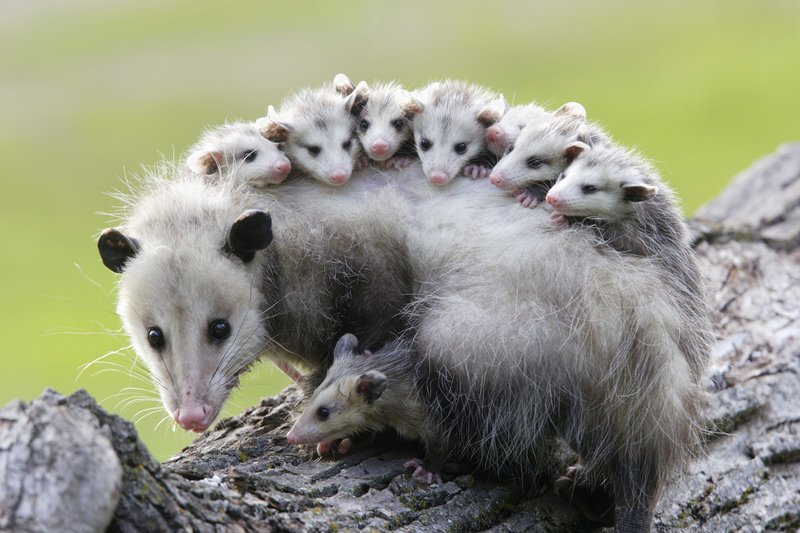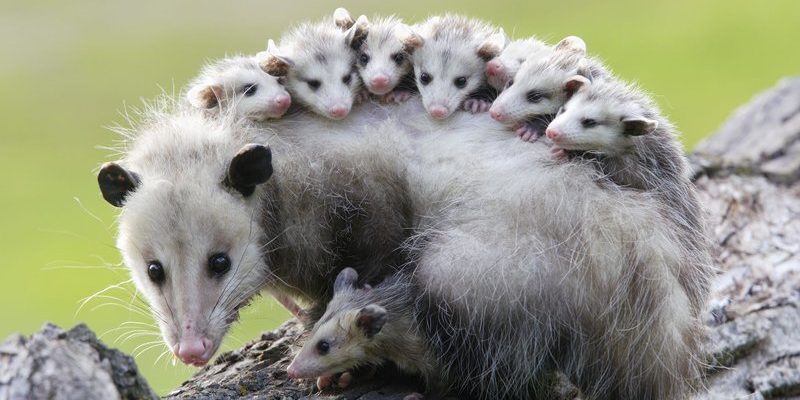
These nocturnal marsupials are often misunderstood, but they play a vital role in their ecosystems. To picture a possum raising its young, think about a tiny kangaroo, but instead of hopping around, it’s climbing trees and scurrying through underbrush. The way possums care for their babies is like a wild adventure—full of challenges and moments of tenderness. Let’s dive into the world of possum parenting and discover how these creatures ensure their young grow up healthy and strong.
The Basics of Possum Reproduction
Possums are unique in their reproductive strategies. They typically mate in the spring or early summer, giving birth to a large number of tiny, underdeveloped young. Here’s where it gets interesting: these little ones are about the size of a jellybean and can’t fend for themselves at this stage. They’re born blind and hairless—quite helpless, really!
After around twelve days of gestation, the mother possum gives birth to up to 20 babies, but usually only 6 to 10 will make it to her pouch. This is because, like many marsupials, possums have a pouch where their young can grow and develop safely. It’s like a cozy little nursery, where the babies can latch onto a teat for nourishment. It’s all about survival of the fittest here, as not every baby will have the energy or strength to make it to that pouch.
Life in the Pouch
Once the babies are safely nestled in their mother’s pouch, they spend most of their early life there. It’s a snug spot where they not only get milk but also warmth and security. Inside the pouch, the babies begin to develop, growing stronger and larger as they get more nutrients. It’s kind of like being in a warm, cushy incubator.
The pouch can hold up to five developing young at a time. This stage lasts about two to three months. As they grow, the mother will also start to venture out for food, but the babies stay close by. You might picture this as a busy mom juggling a job while keeping an eye on her kids. While she’s out scavenging for food like fruits, insects, and small animals, she’s also keeping a watchful eye on her pouch.
Weaning and Exploring
As the young possums start to grow fur and their eyes open around the two-month mark, it’s time for some new adventures. At this stage, the mother will begin to wean her young. Just like a child learning to eat solids, the babies will start trying out small bits of food. The mother encourages this by bringing food back to them. It’s her way of saying, “Hey, it’s time to learn how to feed yourself!”
Around three months old, they’ll begin to venture out of the pouch. They cling to their mother’s back while she roams for food. This part of their lives is full of discovery. They learn about the environment, what to eat, and how to navigate the world around them. Just imagine a group of tiny explorers on their first big adventure, riding on their mom’s back as she shows them where to find tasty treats.
Learning Survival Skills
While the mother is the primary teacher, she doesn’t do it all alone. The young possums observe her actions closely. They learn essential survival skills, like how to climb trees to escape from predators or how to find food. This observation phase is crucial for their development. As they watch their mother, they pick up cues on how to interact with their environment.
Possums are known for their adaptability. They can thrive in various habitats, from forests to urban areas. So, as these young ones learn from their mom, they are also picking up on the skills needed to thrive in different settings—whether it’s dodging traffic in a city or foraging in the woods. It’s a remarkable education that helps them grow into well-rounded adults.
Independence and Leaving the Nest
By the time young possums are around four to five months old, they’re getting ready to strike out on their own. While they may still rely on their mother for food and protection initially, they’ll start spending more time away from her. This gradual independence helps them make the transition from dependent youngsters to self-sufficient adults.
Once they reach this stage, it’s all about exploring new territories and finding their own food sources. They’ll often stay relatively close to home for a while, but eventually, they’ll define their own territory. It’s like sending your kid off to college—you want them to be ready for the real world, but it’s hard to let them go!
The Role of Fathers in Possum Families
You might be wondering, what about the dads? Well, here’s the thing: in the world of possums, the father doesn’t have much involvement after mating. Unlike many mammals, male possums don’t help raise the young. They play no role in the nurturing process, so all of the heavy lifting (or rather, carrying) is left to the mother. This might seem a bit unfair, but that’s just how nature has shaped their roles.
Fathers might stay around for a short time after mating, but then they wander off in search of other mates. So, the mother takes on the full responsibility, raising her babies alone. It’s a real testament to the mother’s endurance and nurturing instinct.
Challenges and Threats
Despite their clever parenting strategies, possums face numerous challenges in the wild. Predators, habitat loss, and disease can all threaten their survival. Young possums, just starting to explore the world, are particularly vulnerable. Animals like hawks, owls, and even domestic pets pose threats.
On top of that, as urban areas expand, possums often have to navigate human environments, which can be risky. Roadways and pollution are constant dangers. It’s a tough world out there for a young possum, and those skills learned from their mother become crucial for their survival. This teaches them resilience and adaptability from a young age.
In summary, possums are a fantastic example of how animals can raise their young in challenging conditions. Their unique pouch system, teaching strategies, and independence preparation highlight the fascinating ways nature has evolved to ensure the survival of the species. Understanding how possums raise their young can deepen our appreciation for these often-overlooked creatures in our backyards.
So next time you spot a possum rummaging around, remember the amazing journey those little ones are on, supported by their tenacious mothers in the wild.

